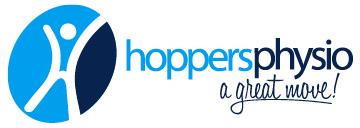TMJ Dysfunction
 The Temporo-Mandibular Joint (TMJ) allows movement of jaw in relation to the skull. A number of muscles attached to the skull and jawbone cause the jawbone to move as the mouth is opened and closed. The joint contains cartilage disc lubricated by fluid to ensure movement is smooth and frictionless. TMJ dysfunction is a very common problem affecting up to 33% of individuals within their lifetime. TMJ symptoms may occur on one or both sides of the jaw.
The Temporo-Mandibular Joint (TMJ) allows movement of jaw in relation to the skull. A number of muscles attached to the skull and jawbone cause the jawbone to move as the mouth is opened and closed. The joint contains cartilage disc lubricated by fluid to ensure movement is smooth and frictionless. TMJ dysfunction is a very common problem affecting up to 33% of individuals within their lifetime. TMJ symptoms may occur on one or both sides of the jaw.
Why does TMJ Dysfunction happen?
TMJ symptoms can commence as a result of a one off injury (eg. Blow to the jaw or face in sport) or as a result of repetitive motion and has many similarities to other “wear and tear” musculoskeletal disorders affecting other parts of the body.
TMJ disorder can also be the result of malalignment of the teeth, clenching or grinding of the teeth and stress. These cause the muscles surrounding the jaw to overwork which can cause joint derangement. TMJ dysfunction has also been linked to issues in the cervical spine or neck.
In rare cases TMJ pain can result from inflammation of the joint caused by disease such as rheumatoid arthritis or gout.
Symptoms
- Clicking when speaking and chewing
- Popping when speaking and chewing
- Muscle spasm
- Locked jaw, unable to open and close your mouth
- Facial deformity, or swelling
- Tenderness over the jaw joint in front of the ear
- Toothache or ear pain
- Headaches
- Pain in the neck
Treatment
Once a TMJ disorder is diagnosed, physiotherapists may perform treatment techniques to aid in realigning the TMJ and correcting its movement patterns.
These treatments can include:
- Joint mobilisations where your Physiotherapist will gently glide the TMJ from either inside or outside of your mouth to assist with joint movement
- Massage to the jaw muscles to relieve tension that may be pulling on the TMJ
- Exercises to correct TMJ movement and/or jaw muscle strength and coordination
- Treatment of surrounding areas of the body such as the neck which are commonly present with TMJ dysfunction
- Assistance to improve your posture including setting up your car or desk to maintain optimal positioning
Tips for TMJ sufferers
- Heat or ice packs applied to the jaw. Heat and ice may also be applied to the neck or forehead should pain present in these areas
- Avoid over opening the mouth. Cut food into small pieces and try making a fist under your chin when yawning
- Eat soft foods
- Avoid leaning your chin on your hands or holding your phone between your ear and shoulder
- Ensure you sit and stand with good posture
- Learn relaxation techniques to assist with stress such as yoga, meditation and massage.
If you are suffering from TMJ dysfunction our Hoppers Physios can provide a full assessment and treatment plan, call us to make an appointment!
